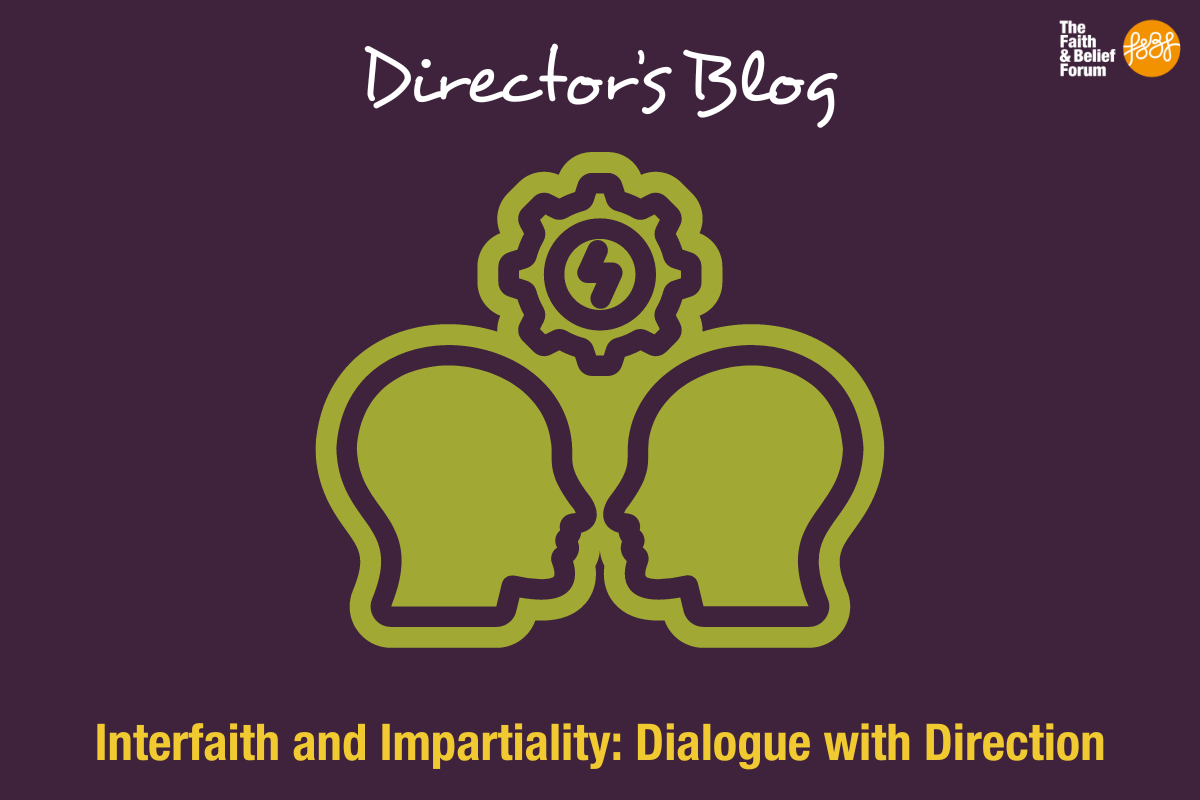
Challenging Faith Based Hate: True Stories
16 / 02 / 24
Menu

02 / 11 / 21

By Phil Champain, Director of the Faith & Belief Forum
As Inter Faith Week (14th-21st November) approaches there is another event happening that challenges all of us, no matter what our faith or belief. That event is COP26 – the latest meeting of those countries that signed the United Nations Framework on Climate Change back in 1994. This is their 26th meeting. The Paris Conference in 2015 was, perhaps, the most upbeat meeting, when 195 signatory countries agreed to the target of keeping global warming to below a rise of 1.5C by 2030.
In a blog around the time of the Paris agreement, I wrote ‘Perhaps one of the most amazing recent examples of a diverse group of people producing something positive together was last Saturday’s agreement by the leaders of 195 nations to confront global climate change after 21 years of diplomatic wrangling. OK, it’s not perfect and should be regarded as a starting point for further measures, but for the first time, all nations – rich, poor and in between — have agreed on a universal plan to reduce the emissions that cause global warming.’
6 years on, COP26 will assess progress towards the goal of restricting global warming to 1.5C, and make new commitments aimed at keeping us on target. Of course, there are many challenges that face global leaders and activists alike. We are in transition – from a fossil fuel driven economy to one driven instead by renewable energy; from a linear economy to a circular economy; from unsustainability to sustainability. This transition needs to happen and needs to quicken pace – for the sake of the planet, our children, and our children’s children.
It remains a treacherous path to navigate. Whose transition are we talking about? Who will need to change and in what ways? Who will pay? Who will be the main beneficiaries? We can be sure – the impacts of the transition on people’s lives will not be even. Given this, there is both need and opportunity to consider how energy provision is governed, as well as how it is sourced. Inclusion and fairness must underpin the transition.
This month and next will be busy for the Faith & Belief Forum. We have begun face to face visits to universities as part of our youth leadership programme; launched the new ENGAE network to connect faith communities with decision makers; we will host the 5th Faith & Belief Community Awards; conduct research into what parents and communities think about Religious Education; will present an CPD webinar modelling our schools programmes and will gather for an LGBTQ+ Interfaith Social.
At the heart of all our work are the twin, interrelated, goals of strengthening relations between people of different faiths, and improving how we are governed. COP26 must hold the question of how energy provision is governed amidst the noise about the transition to low carbon and net zero emissions. Both are needed if we are to create a more just, as well as a more sustainable world. A future which belongs to people of all faiths and beliefs.

16 / 02 / 24

15 / 02 / 24

16 / 01 / 24